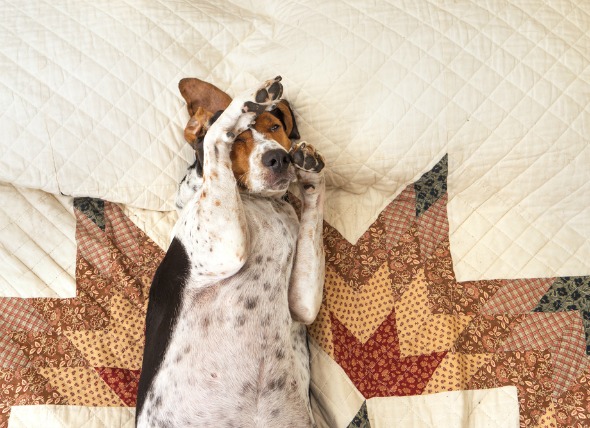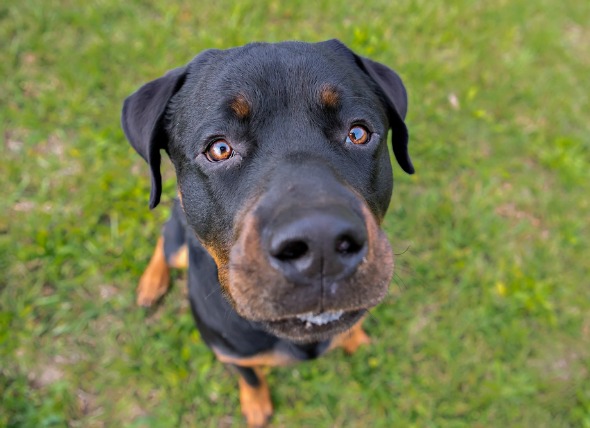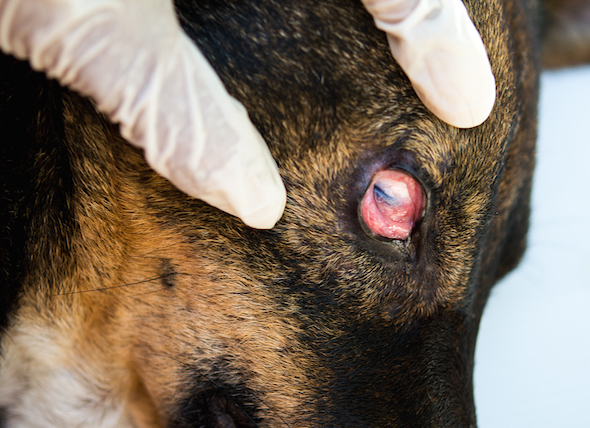

Medically referred to as fecal incontinence, losing the ability to control its bowel movements is distressing for both the dog and the owner. Typical causes to this condition include injury to the spine or tail, anal gland disease(s), and/or an intestinal disorder.
A range of causes may be responsible for this:
This condition seems to afflict older animals more than young ones. Keep in mind that a gastrointestinal disease of any kind may increase the urge to defecate and is not necessarily an indication of fecal incontinence. Gastrointestinal disease often causes weight loss, vomiting, spasms of the urogenital diaphragm and a desire to evacuate the bowel or bladder.
You will need to give a thorough history of your dog's health, including a background history of symptoms, and possible incidents that might have precipitated this condition. If you have a feeling or clue as to what might be causing your dog's incontinence, share this with your veterinarian. It can guide your doctor in the direction for finding the underlying condition that is causing the symptoms so that your dog can be treated effectively.
As part of a normal physical examination, your veterinarian will go over your dog's physiology thoroughly, paying attention the muscles of the anus and sphincter. A complete blood profile will be conducted, including a chemical blood profile, a complete blood count, a urinalysis and a fecal analysis. If an infection or parasite is present, it will most likely turn up through one of these diagnostic methods.
Lack of supporting evidence for any health condition may lead your veterinarian to determine the cause for the incontinence as behavioral. If this is the case you will need to consult with your veterinarian on how to go forward with a behavioral retraining program.
Drug-choice will depend upon the cause of the incontinence. For example, opiate motility-modifying drugs increase the contraction of the bowl and slow the passage of fecal material. This will also increase the amount of water absorbed from the feces. Anti-inflammatory agents sometimes benefit patients with reservoir incontinence that is caused by inflammatory bowel disease.
Motility-modifying drugs should not be used if an infectious or toxic cause is suspected, and opiate motility modifiers should never be used in patients with respiratory disease. If the patient has liver disease, these drugs should be used cautiously. Use of opiates in dogs is not recommended at all, and motility-modifying drugs may cause constipation and bloating.
You will want to work directly with your veterinarian if your dog has been diagnosed with fecal incontinence. For example, if the cause is determined to be neurologic, the veterinarian will want to examine your dog frequently. Various kinds of radiologic tools may be used to measure progress. It will take patience on your part, as it may take a while for your veterinarian to come up with a therapy that will work for your dog.
 High Cholesterol in Dogs
Hyperlipidemia in Dogs
Hyperlipidemia is characte
High Cholesterol in Dogs
Hyperlipidemia in Dogs
Hyperlipidemia is characte
 Addison’s Disease in Dogs
Hypoadrenocorticism in Dogs
Mineralocorticoids an
Addison’s Disease in Dogs
Hypoadrenocorticism in Dogs
Mineralocorticoids an
 Bleeding Disorder in Dogs
Von Willebrand's Disease in Dogs
Von Willebra
Bleeding Disorder in Dogs
Von Willebrand's Disease in Dogs
Von Willebra
 Eye Inflammation (Blepharitis) in Dogs
Blepharitis in Dogs
Blepharitis refers to a condi
Eye Inflammation (Blepharitis) in Dogs
Blepharitis in Dogs
Blepharitis refers to a condi
 Conjuctivitis (Pink Eye) in Dogs
Conjunctivitis in Dogs
The conjunctiva is the moi
Conjuctivitis (Pink Eye) in Dogs
Conjunctivitis in Dogs
The conjunctiva is the moi
Copyright © 2005-2016 Pet Information All Rights Reserved
Contact us: www162date@outlook.com